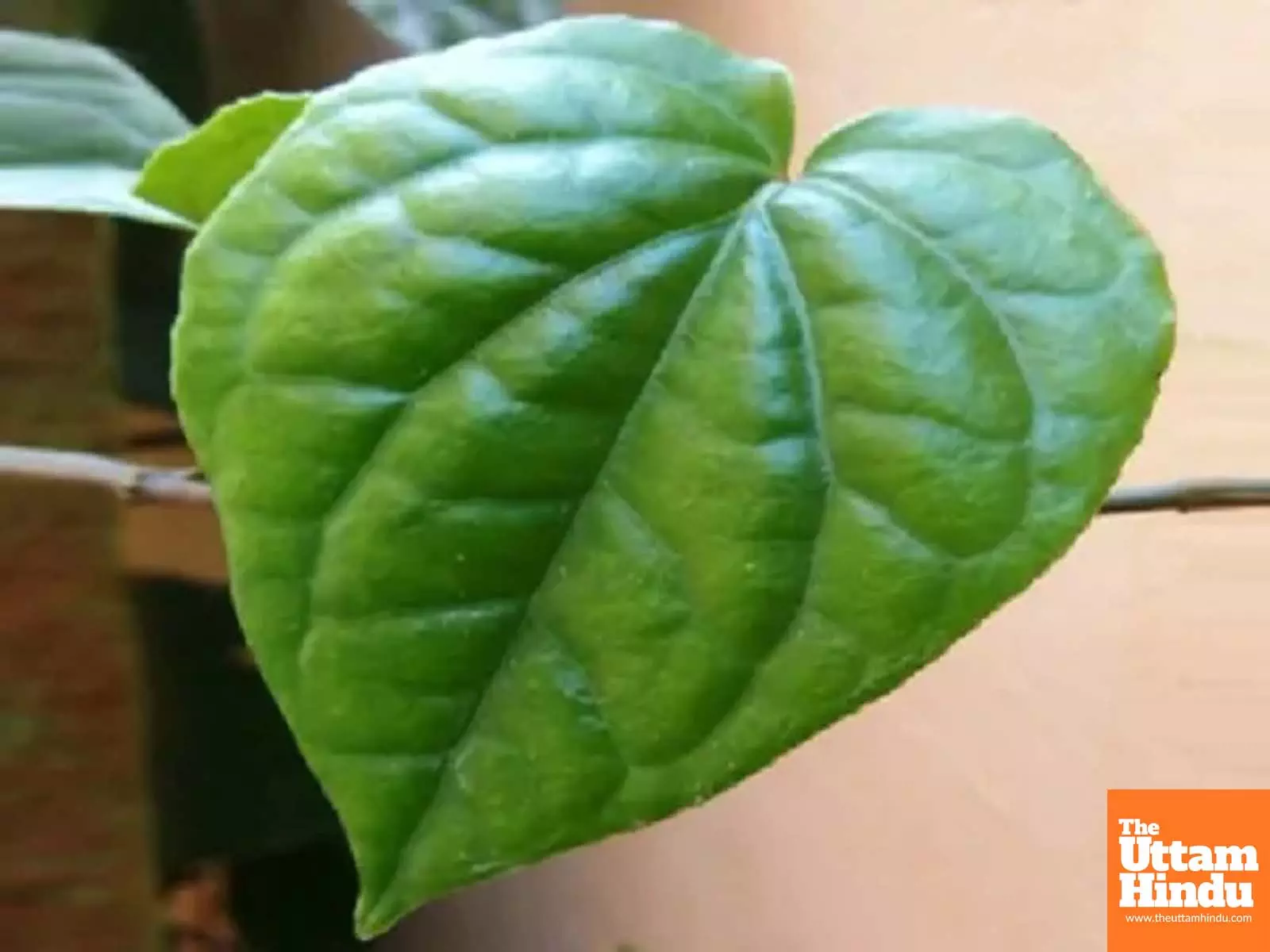
New Delhi (The Uttam Hindu): In Indian culture, betel leaf is a symbol of auspiciousness, medicinal properties and our tradition. Be it any puja-paath, marriage or any religious event… betel leaf is important on every auspicious occasion. Science and Ayurveda also recognize its qualities. The medicinal properties present in its leaves provide many benefits to the body.
According to the American National Library of Medicine, betel leaf naturally contains anti-bacterial, anti-inflammatory and anti-oxidant properties. Many researches have found that betel leaf can be helpful in preventing the growth of cancer cells to some extent. It helps in increasing the immunity of the body and fighting infection. At the same time, it has been used in Ayurveda for centuries for common problems like cold, cough, sore throat and bad breath.
Apart from this, betel leaves are also used to improve digestion, as it controls the acidity of the stomach and reduces problems like gas or indigestion. Chewing betel leaves removes bad breath and freshens the breath, as its anti-bacterial properties reduce the bacteria in the mouth. This property makes betel a natural mouth freshener after meals. Vitamin C and other antioxidants found in betel leaves protect the body from free radicals and slow down the aging process.
It is very easy to plant the betel vine at home, because its vine does not like too much sunlight. It can be easily planted near the balcony, veranda, or any shady wall of the house. Its vine grows slowly and spreads on the railing or wall, giving a beautiful natural decoration to the house. It is not grown from seeds but from the vine branch. Plant the 5-6 inch long branch in lightly moist soil, mixed with cow dung manure or compost, and water it. Keep in mind that in summer, protect it from direct sunlight and keep spraying lightly on the leaves so that moisture is maintained. Water less in winter, but do not let the soil dry completely. If insects attack the leaves, then spray neem water or homemade insecticide.
